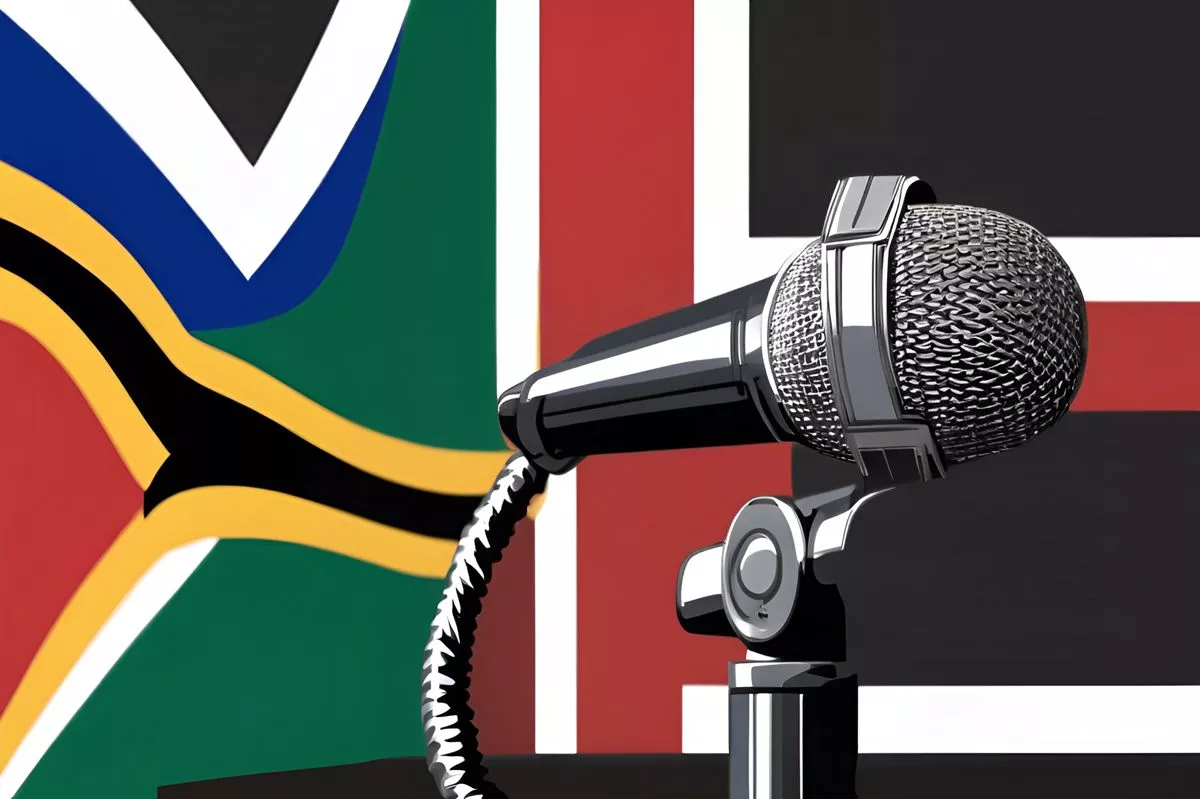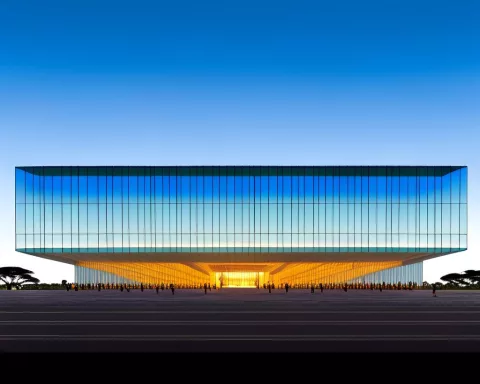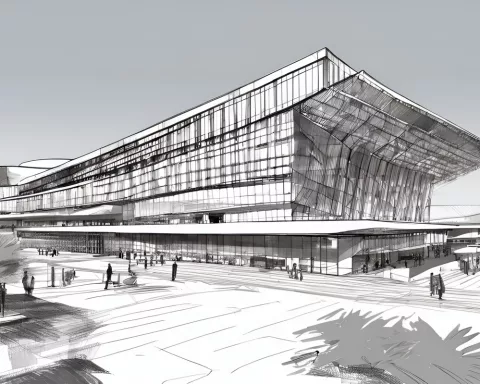Understanding the correct parliamentary titles and procedures is crucial for maintaining the integrity of South Africa’s democratic system. The Presiding Officer of the National Assembly should be referred to as the “Speaker of the National Assembly,” and it’s important to differentiate between the “State of the Nation Address” and “Opening of Parliament Address.” Misinterpretations and misnomers can lead to communication gaps and misunderstandings that can impact the functioning of parliamentary structures. It’s essential for all stakeholders to use accurate terminology and understand parliamentary processes to safeguard the integrity of South Africa’s democracy.
Delving into the Details of Parliamentary Positions and Procedures: Understanding the Correct Titles. The appropriate title for the Presiding Officer of the National Assembly is “Speaker of the National Assembly”. It is important to use the correct titles to maintain the integrity of our constitutional democracy and to understand the distinct roles of each House.
In the current fast-paced and dynamic political landscape, comprehending the subtleties of parliamentary positions and procedures is of utmost importance. Any confusion or misinterpretation, no matter how commonplace, can lead to communication gaps and unclear delineation of duties. Therefore, it becomes essential to explore the roles of those who preside over the National Assembly and the National Council of Provinces, and the significance of their accurate titles.
Understanding the Correct Titles
Often, one can notice a rising tendency to refer to the Presiding Officer of the National Assembly as the “Speaker of Parliament”. This, however, is a misnomer. The appropriate title is “Speaker of the National Assembly“. While this might appear as a harmless mistake, a slightly informal usage rather than a misconception, such continual errors can eventually become deeply rooted in public awareness, thereby influencing perceptions and narratives.
Understanding the Constitutional Framework
Our parliamentary structures and functions are clearly defined by the South African Constitution. The Parliament comprises two separate houses – the National Assembly, and the National Council of Provinces (NCOP). The National Assembly represents the people, and the NCOP ensures provincial interests are taken into account at the national level.
The Speaker of the National Assembly and the Chairperson of the NCOP, elected from the members of their respective houses, preside over these Houses as per Sections 52 and 64 of the Constitution. The widespread usage of the term “Speaker of Parliament” is not just constitutionally incorrect but also suggests a unicameral legislative system, which South Africa does not follow. This diminishes the significance of the NCOP and its Chairperson, and the crucial roles both houses play within our bicameral system.
Importance of Correct Usage
Given such potential damaging confusions, it becomes vital to correct these misinterpretations, particularly among key societal stakeholders. Maintaining the integrity of our constitutional democracy requires a lucid understanding and communication of the distinct roles of each House. Thus, it is essential for all role-players to use the correct titles when referring to parliamentary officers.
Addressing the Confusion Between Annual Addresses
Another common area of confusion is the interchangeable usage of the terms “State of the Nation Address” and “Opening of Parliament Address”. These are annual speeches delivered by the President to the joint sitting of the two Parliamentary Houses. While their purposes might seem similar, their constitutional and ceremonial importance differ greatly.
Distinctive Nature of the Addresses
The “State of the Nation Address” is an annual event every February. During this event, the President outlines the government’s key policies and plans for the upcoming year. The “Opening of Parliament Address”, however, is a singular event that occurs once every five years, immediately following National and Provincial Elections. This not only marks the commencement of a new legislative cycle but also sets the agenda for the forthcoming term.
In November of the previous year, the Parliament’s Joint Rules Committee took the decisive step to explain the difference between these two addresses by modifying its joint rules. This distinction is vital for comprehending parliamentary procedures and for the accurate reporting of these significant national events.
The Role of the Public in Preserving Parliamentary Integrity
In conclusion, the subtleties of parliamentary roles and procedures might seem complex, but they form the foundation of our democratic system. Using the correct titles and understanding the unique constitutional roles of different addresses is not merely a matter of semantics. It is a vital aspect of preserving the integrity of our constitutional democracy.
As the public, we must take the responsibility to acquaint ourselves with the correct terminology and processes that underpin our parliamentary system. From visiting Parliament and attending a debate to ensuring we use the correct titles when referring to our parliamentary officers, we all have a role in safeguarding the integrity of this essential democratic institution.
The Parliament of the Republic of South Africa urges everyone to show active interest in the functioning of the parliamentary system. Armed with the right knowledge, we can all contribute significantly to the democratic process and ensure that our voices resonate at all levels of government.
What is the appropriate title for the Presiding Officer of the National Assembly?
The appropriate title for the Presiding Officer of the National Assembly is “Speaker of the National Assembly”. It is crucial to use the correct titles to maintain the integrity of our constitutional democracy and to understand the distinct roles of each House.
How are the roles of the National Assembly and the National Council of Provinces defined in the South African Constitution?
The roles of the National Assembly and the National Council of Provinces are clearly defined in the South African Constitution. The National Assembly represents the people, and the National Council of Provinces ensures provincial interests are taken into account at the national level. The Speaker of the National Assembly and the Chairperson of the National Council of Provinces preside over these Houses as per Sections 52 and 64 of the Constitution.
What is the difference between the State of the Nation Address and Opening of Parliament Address?
The State of the Nation Address is an annual event every February, during which the President outlines the government’s key policies and plans for the upcoming year. The Opening of Parliament Address, however, is a singular event that occurs once every five years, immediately following National and Provincial Elections. This event marks the commencement of a new legislative cycle and sets the agenda for the forthcoming term.
Why is it important to use correct terminology and understand parliamentary processes?
Using correct terminology and understanding parliamentary processes is crucial for maintaining the integrity of South Africa’s democratic system and safeguarding its democracy. Misinterpretations and misnomers can lead to communication gaps and misunderstandings that can impact the functioning of parliamentary structures.
How does confusion and misinterpretation impact parliamentary structures?
Confusion and misinterpretation can lead to communication gaps and unclear delineation of duties. This can impact parliamentary structures’ functioning and result in misunderstandings that could potentially threaten South Africa’s democracy.
What role do the public play in preserving parliamentary integrity?
As the public, we have a responsibility to acquaint ourselves with the correct terminology and processes that underpin our parliamentary system. We can all contribute significantly to the democratic process by showing active interest in the functioning of the parliamentary system and ensuring that we use the correct titles when referring to our parliamentary officers.












